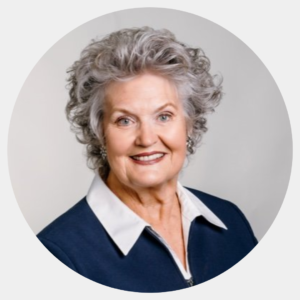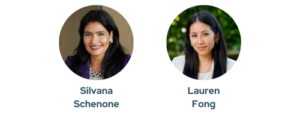Silvana Schenone, Managing Director and Co-Head of Investment Banking, Jarden
Vibrant, brilliant and courageous, Silvana Schenone has a remarkable international background and experience, utilising her Master in Laws from Harvard University with distinction in corporate law and governance. Until recently she was a partner at MinterEllisonRuddWatts, and a lawyer for over 20 years, however, in 2022 Silvana made a complete career change and was appointed as Managing Director and Co-Head of Investment Banking at Jarden.
I asked Silvana how her diverse experiences brought her to her high-profile role today?
“Because I’ve been exposed to different countries and ideas, my mindset is about taking opportunities – I’m not afraid of something different. I love the idea of exploring new things and I’m very curious. When you’ve been exposed to a lot you see the value in being open to discovering new things. It’s exciting and worth exploring new opportunities. It’s in my DNA!
I have assembled my building blocks through many different experiences, and the skills that I have gained are from various jurisdictions and industries, therefore the blocks give me a stable platform. From this platform I can choose where to go next. I’ve built a great network of people too and when they can see your skills and potential you can be true to yourself and explore the opportunities without compromising your principles.
I spent more than 20 years in M&A in the law and was doing very well. I loved my team and my job and had great relationships with my clients, I was well-paid, and I was actually very happy. But, I got to the point where I stopped learning that much and that meant to me that I was going with the flow. I wasn’t learning every day or pushing myself every day. Now that may sound counter-intuitive, and many people said to me ‘why leave the law when you are at the top of your game?’ My Dad asked this too, ‘you have a Master in Law from Harvard, why would you stop using it?’ but my reply was that I had done that already and tested myself and made the best contribution I could make in that role. I wasn’t adding new value to my career and I need to find something exciting for the next 20 years!
Jarden had been talking to me for four years, and when we first talked, they said ‘come and work with us, we pay better!’ But I wanted to know what else they had to offer me? How would I be happier and more excited in this new role? How could I have a bigger impact in the industry and influence things if I take this new job? When I finally made the decision to move, it was because it was my time to move and become my best me. I saw an opportunity to make a difference in the investment banking and financial services industry. It was too good to pass!”
Your knowledge and capabilities in M&As, joint ventures, private equity investments and general advisory roles enables you to see deeply into the infrastructure of New Zealand and our position on the world stage. How is our country faring in the international market realm?
“I do think the country is at a critical point in our history and we can actually make a meaningful difference to our future. It’s a significant election when we can choose very different paths; sadly, we all feel that the country can do better, and we can see multiple challenges. Everyone is facing issues like the cost of living, talent leakage, the infrastructure crisis – not just buildings but also from the digital viewpoint – crime and safety and social cohesion. We risk losing that common vision of a better country, and if we don’t have this as a goal and incentive, with excitement and motivation, we will struggle. I talk a lot about celebrating success and not just redistributing income; we need to promote income raises and wealth creation (and I think of wealth not just as money, but ideas, team work, and more) we are not ok if people are disadvantaged and we don’t offer opportunities.”
You are a member of the NZ Takeovers Panel, appointed by the Governor General. Please tell us about this role.
“The Takeovers Panel is a regulator and my role is supporting New Zealand’s capital market. It’s not a transactional role, it’s not well paid, but to me it helps NZ Inc. and it’s a role I took as a contribution to the market. You want the market to work in the best possible way, with fairness and also the right incentives. We are a small group but I really enjoy the role.”
If you were to advise the leaders of New Zealand’s political parties on the most important global issues facing our country today, what would they be?
“It’s very similar to my previous answer – some key issues include the cost of living and the inflationary environment which is very challenging for people who are struggling on a daily basis. It’s a big problem – we need economic stability, we need growth, not just redistribution. But how do we incentivise people to stay in New Zealand and be the best contributors they can be? Through leadership and aspiration! To be as happy and excited as I was 16 years ago when I came to New Zealand and saw how vibrant the people are, but we need strong leadership to restore these aspirations. A lot of our problems have become largely politicised and that makes any solution very complicated. Political parties these days seem to focus on problems that catch attention in the 100 days before the election. But nobody seems that worried about, for example, maintenance of public buildings: hospitals and courts. Because maintenance doesn’t seem to be a good way to attract votes!
I think we need realism and hopefully we get to a point of meaningful action. There is a real issue with people feeling disenfranchised because they are lacking opportunities, therefore we need to improve access to education, safe environments for people to work, and that may require us to re-empower authorities. Take for example retail crime where the security guards can’t do anything; we need to get back to basic principles.
We need social cohesion in our country where we feel proud to be Kiwis, where all Kiwis have something to contribute and where we all support each other. There is no benefit in creating division between Pakeha and Māori. We need more cohesion for the benefit of New Zealand as a whole. Māori have a critical role to play in our social fabric and they are great contributors to New Zealand; we need to stop seeing these as racial divisions, we need to bring our best to the table.”
You’re a founding member of On Being Bold. Tell us more about this organization and how it benefits women.
“On Being Bold is a collective created to support and inspire women to reach their full potential. The organization is focused on women in business, those who are stepping up. Nine of us founded it with the vision of wanting women to know that they can have it all. Sometimes there are times in your life where it’s difficult and you have to slow down, children are a great example of this, but you can still do it and we should support each other and lean on each other.
Much like Global Women, we have conferences and we support people through these and meetings. We are not competing with Global Women, many of us are also GW members but we believe in the more of these organisations, the merrier. It’s a way to amplify our message.
On Being Bold has an annual conference when about 1000 women attend, and they leave feeling inspired. The conference is called Bold Steps and this year will take place on 1st December. It’s already sold out!
We reinvest our profits from the conference in a tailored event for Year 13 girls from underprivileged backgrounds. We have a mini-conference for them and bring great speakers and inspirational leaders in different aspects of society to participate. Nicola Willis spoke to the girls this year. Former Prime Minister Jacinda Ardern, CEOs and Chairs of companies have spoken. I normally run a session on Impostor Syndrome and how to prepare for an interview, that’s how we all give back.”
With your vast international experience, how do you view the progress of women in New Zealand. Are we holding ourselves back, or stepping up as we can and should?
“This is a great topic. I think we are progressing but we have a long way to go. Right now, we have massive challenges in New Zealand but also everywhere in the world. I think there are certain industries that are more challenging than others. Investment Banking still has a long way to go, so how do we fix this, where does the problem come from? There’s no lack of intention, businesses try to improve and think they are doing their best, but the demands of certain jobs make it difficult for women to progress at different stages in our lives.
NBR interviewed me recently on an article about diversity in M&A and we also talked about diversity in Investment Banking. I told them that when Jarden approached me I asked the Chairman and the CEO, why do you keep coming back to me? Is it just because I am a woman? They said no they wanted just “me”. They said they wanted my “X factor”, but they didn’t frame it as a gender issue. If they had said ‘we want a woman’ it would have been a deal killer. M&A is a lot of work, I work many weekends and long hours, so whether you are male or female, not everyone wants to do this. Traditionally women take certain roles in society. I got quite a nice bit of feedback from friends who said they saw the honesty about it being a tough job, then I got feedback from one person: “These sorts of articles annoy me. There is very little about excellence & a lot of box ticking going on. We just don’t seem to get it do we? The family is the cornerstone of our culture & is being under-mined from every angle. You wonder why mental health is such a huge issue these days? It’s mostly because the family system is not available when the children need it most. Now I’m not saying that women can’t do as a good job as men in some industries, but know this, when your children are at day care all week & you finally figure out what’s really going on at your day care, then you begin to understand that mums missing in action is the single biggest contributor to our mental health crisis, across all sectors of our western culture.” – https://www.nbr.co.nz/dealmakers/its-still-a-mans-world-in-m-and-a/
I have a family, I am a good human being, I am a big part of society without children, so this man is telling me how I should live! The thing that shocks me most is that he feels OK about having his name published in a prominent newspaper. I feel that it’s an undeniable truth that women can achieve great things, and then you get this comment, so am I in a bubble? Parenting is a joint concept, and families are not just about having children. It’s a puzzle.
Women can do anything! Families can be different types of units, so if you don’t have children you’re not worse. I tried to ignore these type of comments, but it’s terrifying to see that some people still can’t accept that women can do anything they feel motivated to achieve. The sky is the limit in my view!”
Silvana’s closing thoughts…
“I many times talk about my drive, energy and ambition, those are my superpowers. We can’t be afraid of having ambition, or being knocked back, success is not linear. People tell me I’m lucky, but I’m excited about what I have achieved – it’s not luck! I have had some amazing opportunities and I have taken them all! I studied hard at Harvard, and then restudied when I arrived in New Zealand. I do work very hard, I look after my health vigorously, so when people tell me I’m lucky or I’m pretty, I get pretty annoyed.
I have been Type One Diabetic since I was 12. I went into a coma. I’m connected to an insulin pump 24/7 to survive, so I have to look after myself really well. I don’t drink alcohol and I work out. If you want to succeed in any aspect of life, including your personal life, you have to put in the effort.
I was fortunate that I grew up in a supportive environment and went to a good school, so yes there are some people who have had more opportunities than others. But you can find opportunities and take them; some will work out and some won’t. Take them when they come- which is mostly not at the ideal time. We all have bumps in the road to overcome, just keep going. Learn and move on. We all face challenges, and we all have opportunities. Make the most of them!”
Thank you, Silvana, for all you have given, and continue to give, to Aotearoa New Zealand. We are blessed to have you as a leader in our country!
Interviewed and written by our Editor in Residence, Jenni Prisk (Global Women Member)





